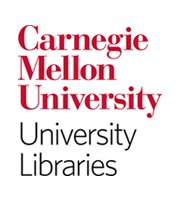For CMU, a PeerJ arrangement allows them to support new Open Access business models.
In November 2013, Carnegie Mellon University Libraries entered into an arrangement with PeerJ in which the Library has agreed to buy PeerJ publishing plans for Carnegie Mellon researchers going forward. This case study explains why.

What are your issues with the current system of publication?
Open Access publishing is the future of scholarly publishing. For much too long, commercial publishers have required authors to transfer copyright to them and then charged libraries escalating prices for journal subscriptions, reaping exorbitant profits from research funded by universities, federal agencies and private foundations. Confronted by mandates, these same publishers embargo deposits in Open Access repositories and levy a substantial Article Processing Charge (APC) for immediate Open Access in so-called hybrid journals. More often than not, these hybrids are not a transition stage to fully Open Access journals, but rather provide a second revenue stream from the same content. Commercial publishers of hybrid and fully Open Access journals charge APCs far higher than non- profit publishers. They serve stockholders, not the research community.
Why is Open Access important to your institution?
Open Access increases the impact of research and maximizes the return on investment in research. In keeping with the mission of Carnegie Mellon University (CMU), Open Access leverages technology to disseminate and democratize knowledge to an extent not possible in the print era. The University Libraries encourage CMU researchers to deposit their manuscripts in Carnegie Mellon’s Open Access repository, Research Showcase, and to publish their work Open Access. The Library has institutional memberships in BioMed Central and the Public Library of Science to give CMU authors discounts on APCs. We provide financial support to help authors pay APCs when they have no other source of funding.
What is it about the PeerJ model that interests you?
The University Libraries are committed to facilitating the transition to Open Access publishing. The PeerJ model is affordable and innovative, and the PeerJ subject areas are aligned with the disciplinary domains of the CMU research community. To develop sustainable business models for Open Access publishing, experiments such as PeerJ must be supported. PeerJ levies membership fees in lieu of APCs. Memberships are purchased using our APC fund.
What kind of arrangement have you entered into with PeerJ?
When a paper is submitted or accepted for publication in PeerJ, the University Libraries will automatically pay the cost of a Basic or Enhanced publication plan for any CMU author. Basic plans allow an author to publish one PeerJ article every year, for life, for free. Enhanced plans allow an author to publish two PeerJ articles every year, for life, for free. The publication plan remains with the author, even if the author leaves Carnegie Mellon University.
What problem does the PeerJ Arrangement solve for you?
Many CMU authors are deterred from Open Access publishing by high APCs. The University Libraries provide financial support to help authors pay APCs, but the fund is limited. Purchasing PeerJ plans is an affordable way to encourage Open Access publishing and to support experimentation with Open Access business models.
For more information, and a current list of institutional customers, see http://peerj.com/edu

